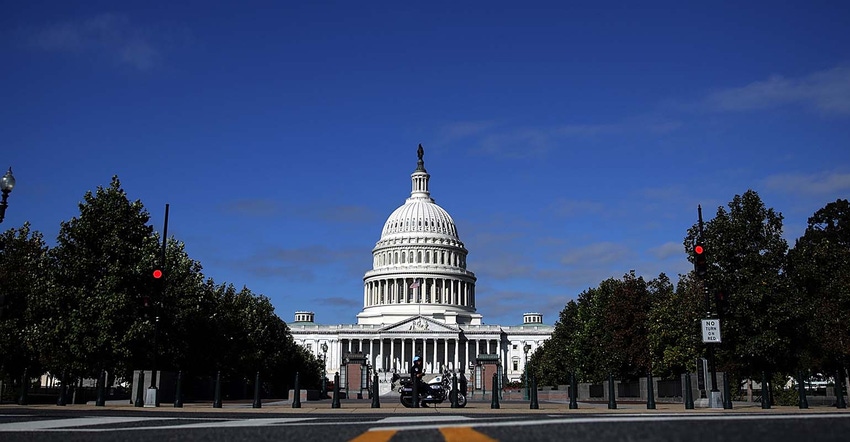
At a Glance
- Effort aims to repeal EPA rule on navigable waters.
- House and Senate Republicans note the rule is administrative overreach and creates confusion.
- Detractors of the new WOTUS rules question why EPA released them while U.S. Supreme Court is deliberating a related case.
Republican lawmakers in the House and Senate announced nearly identical Congressional Review Act resolutions formally opposing the Biden administration’s Waters of the United States rule. Sen. Shelley Capito, R-W. Va., the Ranking Member of the Environment and Public Works Committee, introduced a resolution of disapproval bill on behalf of all 48 Senate Republicans.
“With its overreaching navigable waters rule, the Biden administration upended regulatory certainty and placed unnecessary burdens directly on millions of Americans,” Capito said. “This Congressional Review Act resolution of disapproval will give every member of Congress the chance to stand with farmers, ranchers, landowners, and builders, and protect future transportation, infrastructure, and energy projects of all kinds in their states. I appreciate the widespread support we’ve received in both the Senate and House, and across the country, as we fight to place an important check on this misguided overreach from the Biden administration.”
House Transportation & Infrastructure Chair Sam Graves, R-Mo., and TA& Water Resources Subcommittee Chair David Rouzer, R-N.C., introduced the House version. Among the 152 Republicans signing onto the resolution was Agriculture Committee Chair GT Thompson, R-Penn.
“Farmers, ranchers, and landowners deserve a WOTUS definition that is fair to agriculture and maintains the historical reach of the Clean Water Act—neither of which is accomplished by this rule,” Thompson said. “Rather than providing certainty, the Biden Administration has exposed our rural communities to further ambiguity and regulatory burdens that hinder producers’ ability to provide a safe and affordable food supply,"
Under the terms of the Congressional Review Act, Congress can strike down a federal agency rule if a resolution of disapproval is approved by both chambers and signed by the president. With Democrats in control of the Senate and the White House, passage would seem to be unlikely. However, it forces Democrats to take a vote on an issue that divides many of their supporters
The controversial WOTUS rule attempts to clarify what bodies of water fall under Federal control under the Clean Water Act. Last month, a coalition representing 17 trade interest groups filed a lawsuit in federal court challenging its legality.
Complicating matters is an upcoming Supreme Court ruling that many analysts believe could limit EPAs authority. The Sackett vs EPA case involves an Idaho family attempting to build a home near a small lake. After beginning work on their property, EPA officials informed them that the lake might be subject to regulation because it could be considered a “navigable waterway” covered under the Clean Water Act. The Sacketts sued in 2008, and the case has been making its way through the courts ever since.
Charles Yates, a Pacific Legal Foundation attorney representing the Sackett family, calls the new WOTUS rule a “staggering example of federal overreach” that should not have been issued before the court’s ruling. He said that nothing short of a Supreme Court ruling can definitively define what bodies of water fall under federal authority.
“By refusing to wait for a decision in Sackett II, the Biden administration has brushed aside the freedom, security, and prosperity of millions of American landowners,” Yates said. “Instead, it has decided to perpetuate this continuous game of regulatory ping-pong, piling confusion, on to fifteen years of confusion. There is no reason whatsoever to believe the Biden administration has got it right this time. And it is important that this confusing and illegal interim measure be put to a stop before even more damage is done."
About the Author(s)
You May Also Like






